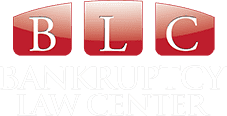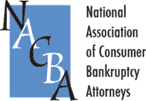
In a constantly evolving economy, career changes have become commonplace. Nevertheless, the financial implications associated with these transitions can be daunting and may lead to increased debt or even bankruptcy for some individuals.
Prior to embarking on a new professional journey, it is crucial to understand how bankruptcy law intersects with personal finance protection in order to mitigate potential risks effectively.
As an experienced bankruptcy attorney, this article will provide valuable insights into navigating the complex legal landscape surrounding financial stability during a period of vocational metamorphosis.
Delving into relevant legislation and case studies, readers will gain practical knowledge about preemptive measures that can safeguard their assets while minimizing any negative impact on credit scores and future borrowing ability.
By arming oneself with this essential information, those undergoing significant employment shifts are better equipped to maintain fiscal security amidst uncertainty.
Understanding Chapter 7 And Chapter 13 Bankruptcy
A staggering 62% of personal bankruptcies in the United States are due to medical expenses, according to a study by Harvard University.
This statistic demonstrates the importance of understanding bankruptcy law when considering a career change or facing financial difficulties.
Two primary types of bankruptcy that individuals may choose from are Chapter 7 and Chapter 13. Each has its own unique set of eligibility requirements, benefits, and potential alternatives.
Chapter 7 bankruptcy involves liquidation of assets to repay creditors while Chapter 13 focuses on reorganization and repayment plans over an extended period.
When evaluating these options, it is crucial for individuals to consider their income levels as well as the nature and amount of their debts.
For example, Chapter 7 eligibility often requires passing a means test which evaluates the debtor’s income against state median income levels while Chapter 13 benefits include allowing homeowners with consistent income streams to retain possession of their homes through structured payment plans.
Bankruptcy alternatives such as debt consolidation or negotiation can also be explored if one’s financial situation does not warrant filing for either type of bankruptcy.
Furthermore, addressing common bankruptcy myths is essential: many people mistakenly believe that filing for bankruptcy will permanently ruin their credit scores when, in fact, responsible financial behaviors post-bankruptcy can lead to gradual improvement in credit ratings over time.
Assessing Your Assets And Debts
Assessing one’s assets and debts is a crucial step in protecting finances during a career change.
Asset evaluation involves taking inventory of all tangible and intangible possessions that have value, such as real estate, vehicles, investments, savings accounts, retirement funds, and intellectual property.
This process enables individuals to gain an understanding of their overall net worth and assists in making informed decisions regarding the allocation or liquidation of these assets to meet financial obligations during times of uncertainty.
Moreover, income analysis plays a significant role in determining how much money will be available for debt management and maintaining a suitable standard of living throughout the career transition.
Effective debt management entails creating an organized plan for systematically addressing outstanding liabilities while considering any changes in income due to the career transition.
Financial organization includes categorizing debts according to priority—secured versus unsecured—and developing strategies for repayment or negotiation with creditors based on potential fluctuations in cash flow during the employment shift.
Furthermore, it may be necessary to consult with professionals specializing in bankruptcy law when evaluating options for alleviating overwhelming financial burdens through legal avenues such as Chapter 7 or Chapter 13 bankruptcy filings.
Ultimately, thorough asset assessment and proactive debt management are essential components of safeguarding personal finances amid occupational upheavals.
Creating A Financial Plan For Your Transition
As the legendary Greek philosopher Heraclitus once said, ‘Change is the only constant in life.’ This adage rings true when considering a career change and its potential impact on one’s financial well-being.
To ensure that economic upheaval does not lead to bankruptcy, it is crucial to develop a comprehensive financial plan for your transition. This plan should encompass several key areas such as financial strategies, transition budgeting, emergency funds, income diversification, and debt management.
A critical component of any successful career shift is having robust financial strategies in place to manage both short-term expenses and long-term goals. Transition budgeting requires careful planning and discipline; by re-evaluating current expenditures and identifying ways to reduce or eliminate costs during this period of flux, individuals can create space for necessary investments in their new professional endeavors.
Building an emergency fund with at least three to six months’ worth of living expenses provides a safety net against unforeseen circumstances while also affording time for job search efforts or business development initiatives. Income diversification may be achieved through various means including part-time work, freelance projects, or passive revenue streams – tactics which provide additional sources of cash flow while simultaneously reducing reliance on a single source of income.
Lastly, effective debt management involves understanding available repayment options, prioritizing high-interest obligations over lower-interest ones, and employing strategies to minimize overall interest paid (e.g., refinancing loans or consolidating credit card balances). By incorporating these essential elements into a holistic financial plan tailored specifically for one’s career pivot journey, the risk of bankruptcy will be significantly mitigated amidst life’s ever-evolving landscape.
Seeking Professional Advice And Support
Transitioning to a new career often requires foresight and diligent planning, as previously discussed in the section on creating a financial plan for your transition. A pivotal aspect of this process is seeking professional advice and support networks that can provide valuable insights into potential bankruptcy law considerations.
Support networks and professional advice are indispensable during a career change, especially when navigating bankruptcy laws or managing personal finances. The following list outlines key resources one should consider leveraging:
Career guidance:
Professional development courses
Mentorship programs
Support networks:
Industry-specific networking groups
Online forums or community discussion boards
Legal consultation:
Bankruptcy attorneys specializing in consumer debt relief
Pro bono legal services offered through local bar associations
Debt management:
Non-profit credit counseling agencies
Certified financial planners (CFP)
Financial advisors:
Fee-only fiduciary advisors who prioritize clients’ best interests
It is essential to remember that every individual’s circumstances will differ; hence it is crucial to tailor these recommendations based on specific needs and goals.
By proactively engaging with various sources of expertise such as those listed above, individuals undergoing a career shift can mitigate any adverse effects on their finances while simultaneously preparing for future success.
The importance of securing sound counsel from experienced professionals cannot be overstated, particularly when facing decisions related to debt management or potentially filing bankruptcy.
Conclusion
In conclusion, a career change can be both an exciting and daunting experience. It is essential to carefully evaluate one’s financial situation prior to making such a significant life decision.
By understanding the differences between Chapter 7 and Chapter 13 bankruptcy, assessing assets and debts, creating a concrete financial plan for the transition period, and seeking professional advice when necessary, individuals can successfully navigate their way through this complex process.
Thus, armed with knowledge and foresight, any individual embarking on a new professional journey shall fear no impending insolvency or crisis. Through diligent preparation and prudent planning strategies, protection of personal finances during a challenging but rewarding endeavor becomes achievable - ultimately leading towards triumph in all aspects of life.









